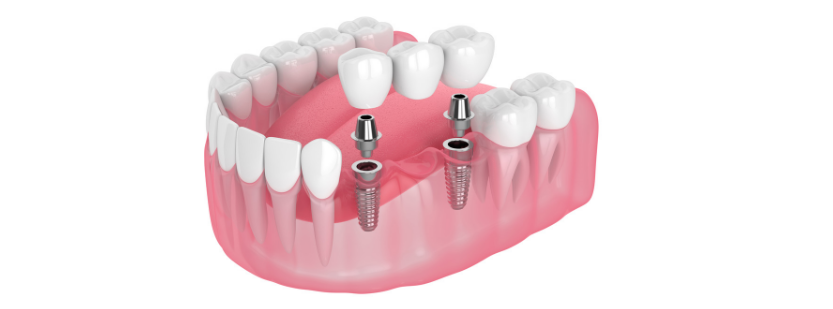Dental implants are widely used in mainstream dentistry. In fact, they’re one of our most popular treatments here at Kiln Lane Dental – but are they the best option for you? It’s a big decision to make and, before you go ahead with the procedure, it’s important to do your research first.
Several factors should be taken into consideration when making this decision, including:
-
Age
A dental implant is a permanent solution for a missing tooth. Essentially, the artificial crown is positioned into the gap and secured in place using an internal screw. This screw is inserted directly into the jawbone. It can only be done when the jawbone is fully-matured – making the procedure unsuitable for both children and young patients below the age of 18.
-
Everyday habits
Bad habits – such as smoking and heavy-drinking – can significantly increase the risks associated with dental implants. Not only will they interfere with the initial healing process, they can also affect the long-term success of the implant itself. Unless you cut back on nicotine and alcohol, you may be deemed unsuitable and some dentists may even refuse to go ahead with the treatment.
-
Medical history
It’s very rare for health problems to prevent the use of dental implants. However, before you sign yourself up, you should discuss any current issues with your dentist and share your medical history. Certain treatments (e.g. radiotherapy) and medical conditions – such as osteoporosis and long-term diabetes – can lead to complications and may affect your suitability for the procedure.
-
Oral health
The health of your mouth will play a huge role in the success of your new implants. For example, periodontal (gum) disease can cause both gum recession and bone loss – and, as a result, will significantly reduce your suitability for the dental implants. In most cases, such dental problems need to be fully rectified before the implant treatment can start.
-
Bone density
When it comes to dental implants, time is of the essence. As soon as a tooth is lost (or extracted) from the gum, the surrounding bone will start to disappear. This is known as ‘bone resorption’. It happens very quickly and, if too much bone is lost, it may affect your suitability for the treatment. The key to success is to act fast and seek the advice of a dentist as quickly as possible.

Dental implants at Kiln Lane Dental
We understand that dental implants are a big decision. It’s important to make sure it’s the best treatment for you and the best way to do that is to seek the advice of our cosmetic dentists.
During your first consultation, we will:
- discuss your goals and what you wish to achieve with implants
- ask a series of questions about your medical history
- perform a thorough examination of your mouth
- take an x-ray to determine your bone density
This will help us to assess your suitability for the procedure. Our priority is to ensure you make an informed decision. If we think you’re a good candidate – great, we’ll book you in for the first appointment. But if we have any concerns, rest assured, we’ll let you know and will typically recommend an alternative dental treatment that is better suited to you.
So why not get in touch today? If you have any questions about dental implants in St Helens, or if you’d like to book a consultation, simply give us a call on 01744 25776. Alternatively, send an email to info@kilnlanedental.co.uk and we’ll respond to your enquiry as soon as possible.